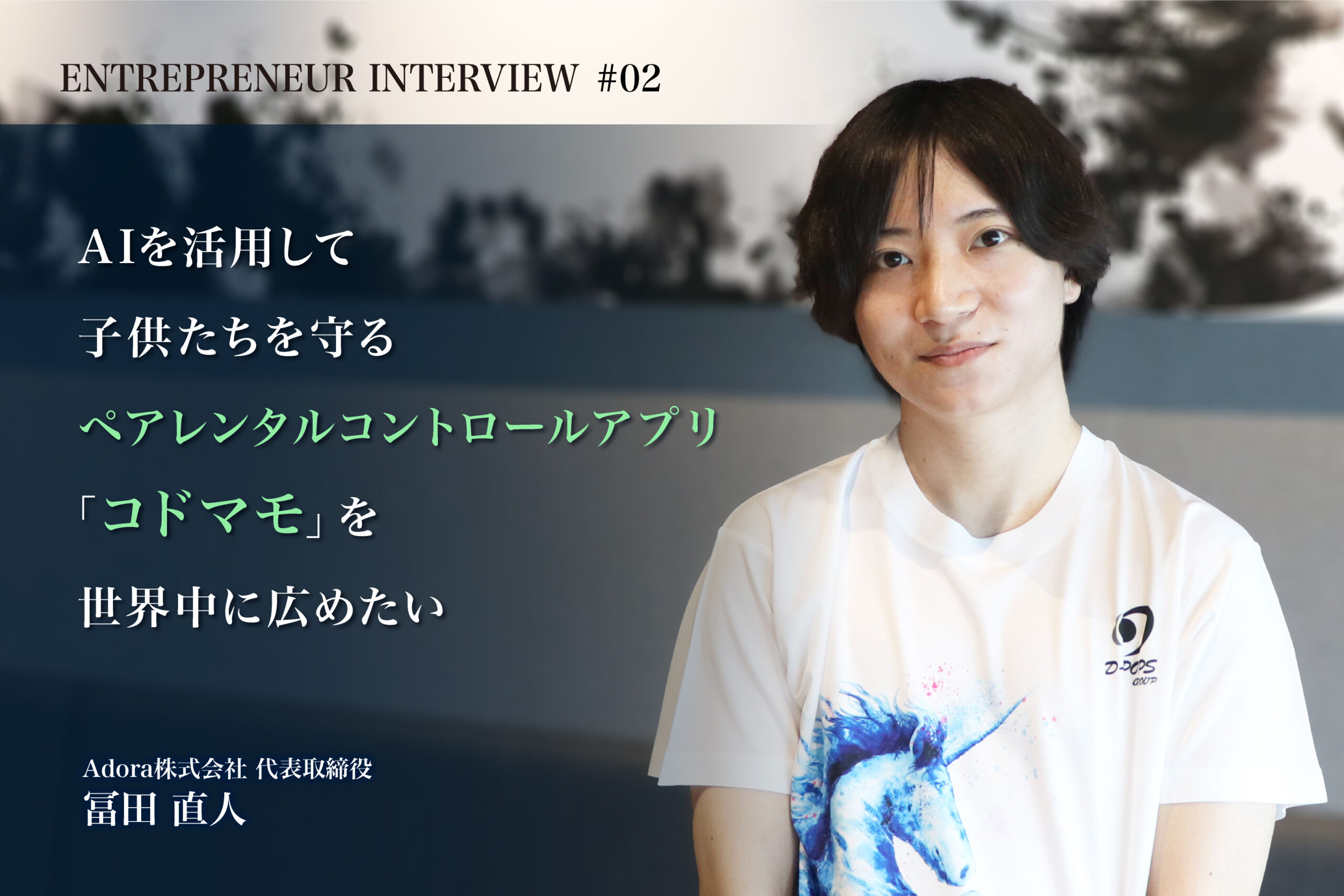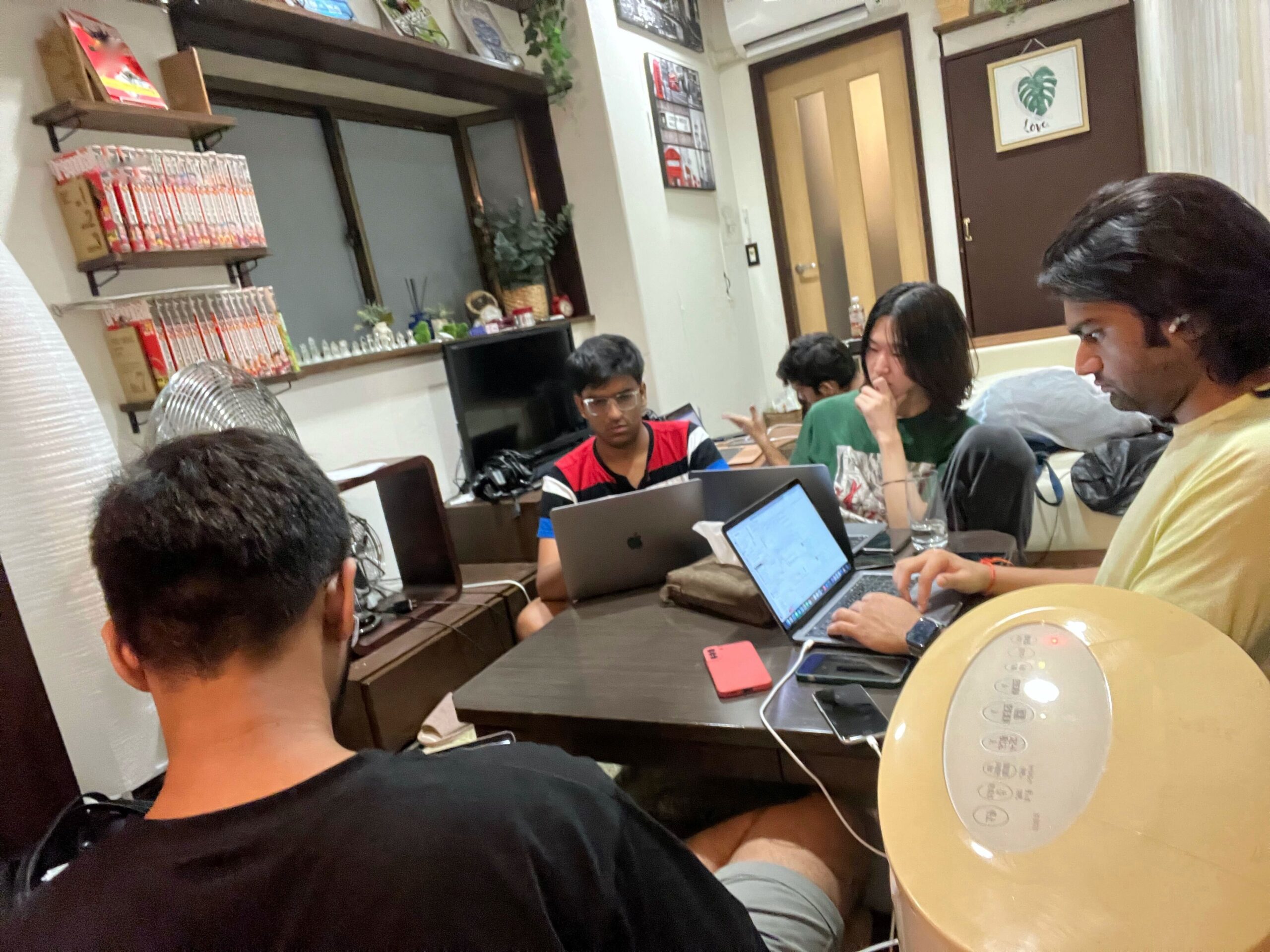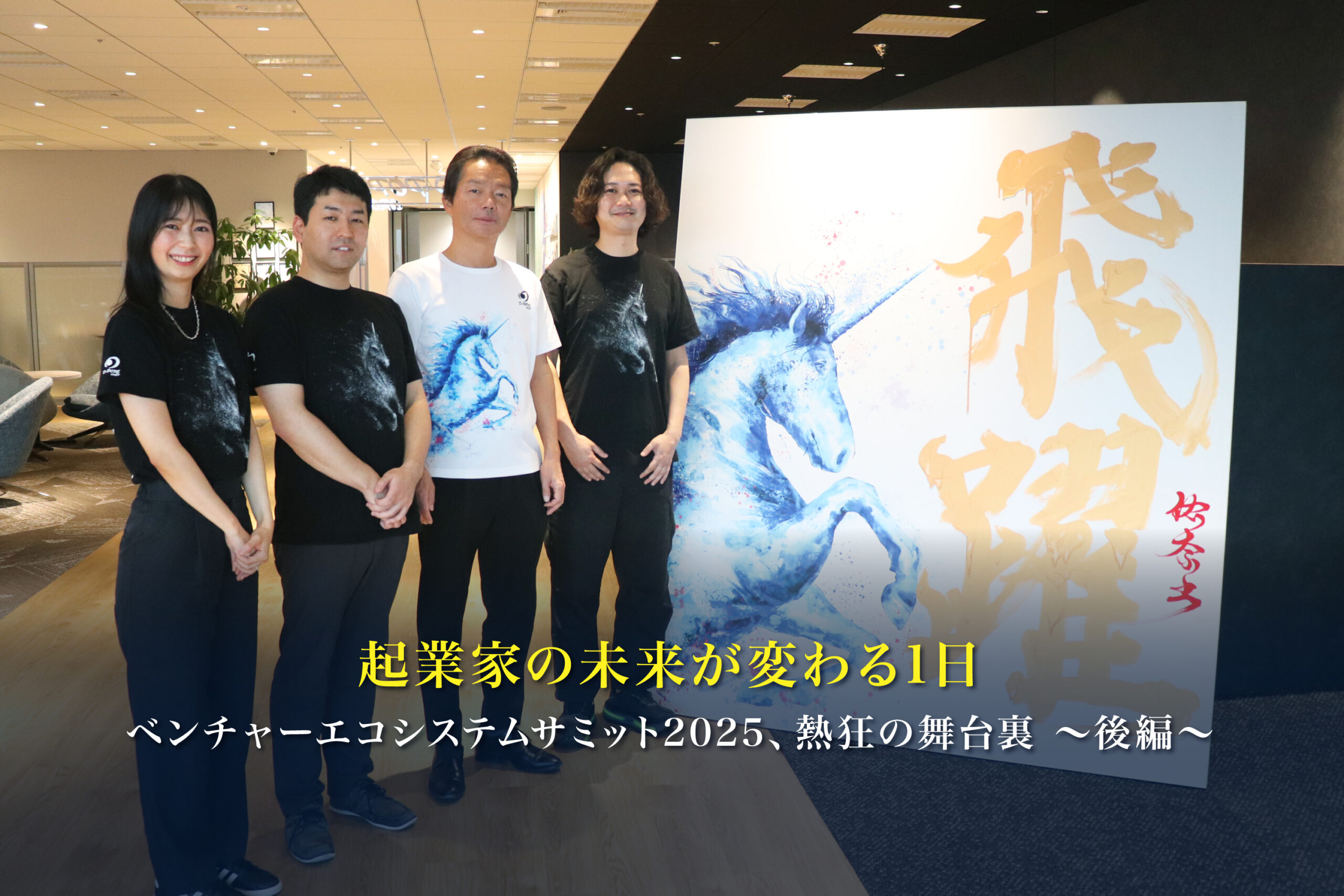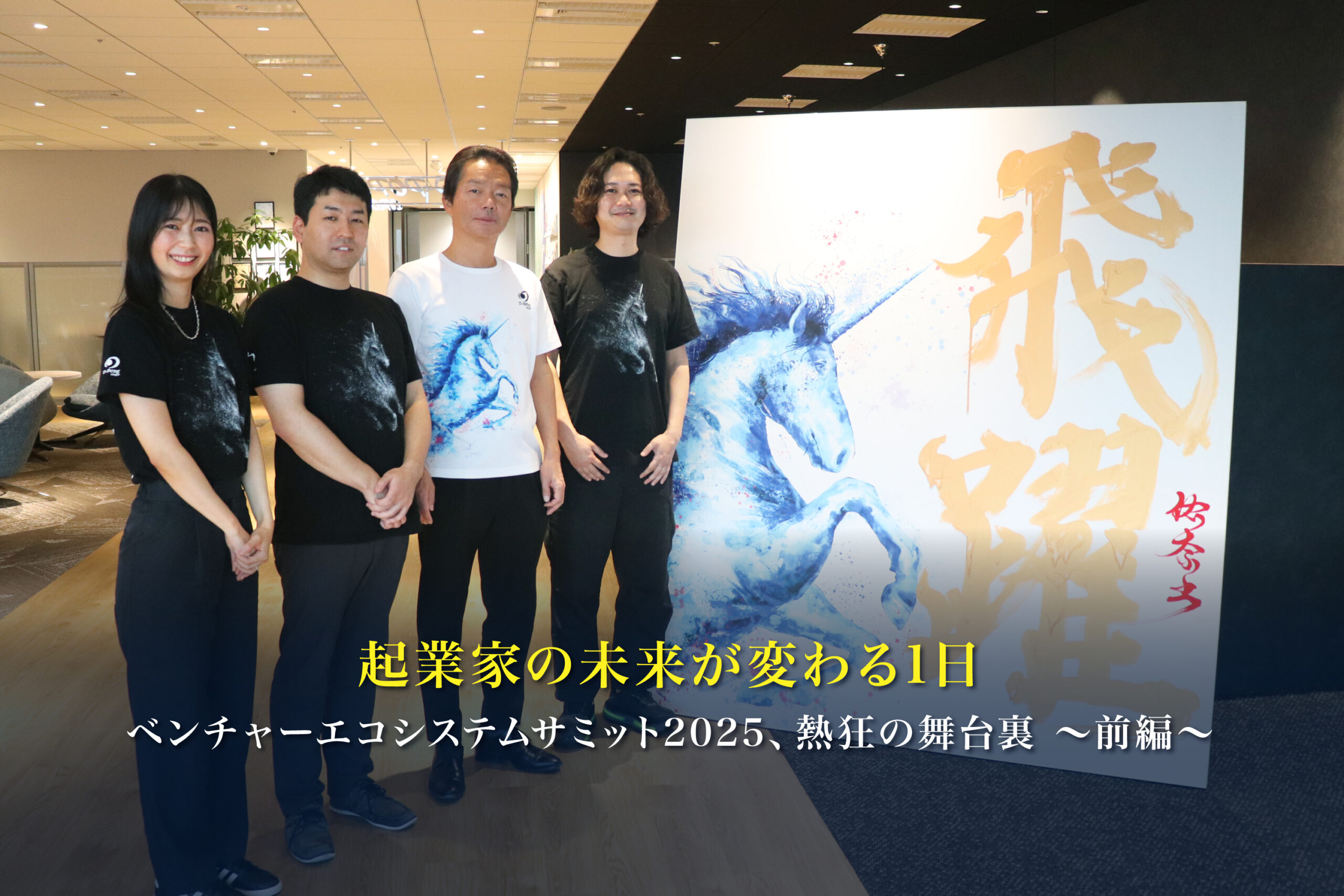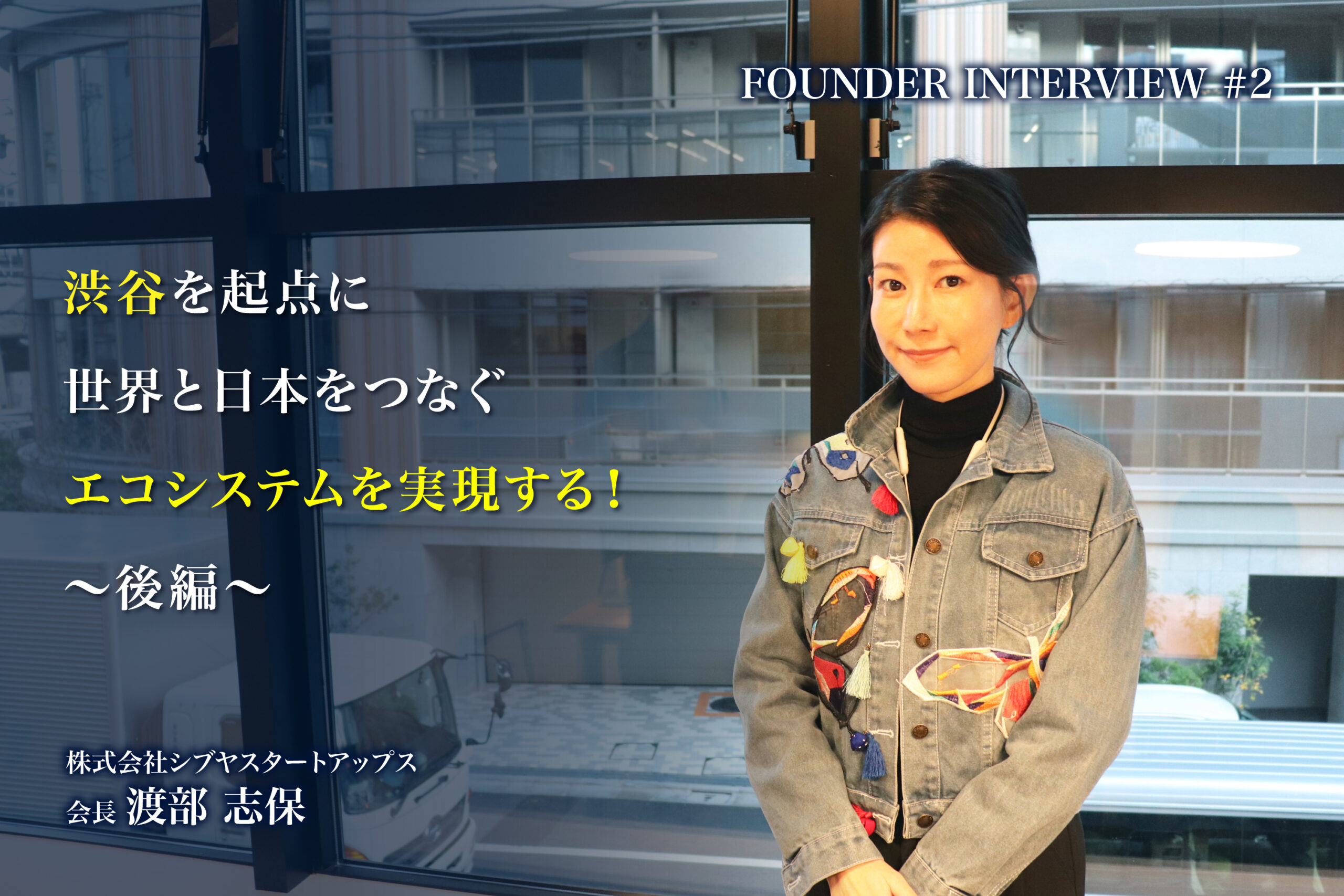“A Day to Change an Entrepreneur’s Future”: The Frenzy Behind the Scenes of Venture Ecosystem Summit 2025 – Part 1
For this article, we interviewed President Goto, the organizer of Venture Ecosystem Summit 2025 held in October 2025, along with the operational committee’s three leaders.
(This interview was conducted in December 2025.)
◆ Reflections on the Event
Sugihara:
Today, we are joined by President Goto, the organizer of Venture Ecosystem Summit 2025, and the operational committee’s three leaders, Mr. Shibata, Mr. Matsutani, and Ms. Kawaguchi.
First of all, a huge congratulations on the massive success of the event! The feedback from participants has been overwhelming, and as a participant myself, I truly enjoyed it. Now that this major effort is finished, could each of you share your honest feelings?
Goto:
Right now, I am simply filled with a sense of relief. To be honest, entrepreneurs have very discerning eyes. Even if they say “It was great!” out of politeness, they’ll tell you clearly by their expressions if they don’t really mean it. They are the type of people who will give you direct, unreserved feedback if there is something they aren’t satisfied with.
We successfully held an event that satisfied entrepreneurs with such strict preferences. So in that sense, we gave it our all, and now we can give a big sigh of relief.
Sugihara:
I’m sure you really put your whole effort into this. Did you happen to fall ill or run a fever after the event ended?
Goto:
Fortunately, I didn’t get a high fever, but I did collapse for a moment, ha ha. I must have been so tension leading up to the event because the next day, I had a feeling of exhaustion that I can hardly even put into words. I was just completely wiped out.
Sugihara:
I’m glad you were able to recover from that! Next up, Mr. Shibata.
Shibata:
I feel very similar to President Goto, but if I had to sum it up in two words, they would be ‘frenzy’ and ‘relief’.
However, my sense of relief is slightly different in nature from what President Goto shared. First and foremost, as part of the operational committee, there was the relief of simply getting through the entire event without any major issues.
Secondly, I was assigned head of the operational committee. During the preparation phase, I placed a fair amount of burden on the other operational committee members, and there were moments when things didn’t go as planned. So when I heard everyone saying “It was a wonderful event” after it finished, I felt a weight finally lift off my shoulders.
Looking back, I feel like that entire period from preparation to the actual event was pure frenzy.
Sugihara:
Everyone was so energetic, they almost seemed to be glowing from within. Mr. Matsutani, how about you?
Matsutani:
At the moment, my heart is welling up with a quiet sense of total fulfillment. While listening to Dr. Semmoto’s lecture and President Goto’s closing remarks at the end of the event, I was moved beyond words.
I felt so glad we were able to hold it in the manner that we did. It felt as clear and refreshing as the moment after listening to a profound and beautiful symphony. From the overall balance of the venue to the almost physically perceptible heat and power radiating from the speakers and participants, I truly felt incredibly glad we made this event happen.
Additionally, every single staff member performed their parts wonderfully. It was impressive to see how everyone embodied our core value of empathy right there at the venue.
Goto:
The participants also complimented us frequently on the staff’s performance. My impression is that paying such close attention to even the smallest behaviors of the staff is entirely to be expected of business owners.
Some staff members were standing at various points along the route from the station to the venue holding guidance signs. Working outdoors in that capacity is much harder than people realize. The CEOs even noticed even those behind-the-scenes efforts and told us, one after another, that the management was truly superb. From the meticulous care inside the venue to every interaction, the team’s response was consistently magnificent.
Sugihara:
Thank you. Now, Ms. Kawaguchi, your thoughts please.
Kawaguchi:
Like everyone else, my first sentiment was relief that the event was held without incident. Even though it was only October, I felt a massive sense of accomplishment, as if I had already conquered the whole year.
Actually, preparations for this event started back in December 2024. We began by inspecting various potential hotels, but just securing a booking was already becoming difficult, so right from the start, we were scrambling to coordinate dates. Because of those circumstances, I feel like I was pouring 100% of my energy for the entire year into this.
This year, I’ve been running with the singular desire to build up anticipation for the Venture Ecosystem Summit and make it a success. Now, I’ve been feeling this comfortable sense like I don’t have to do anything more after finishing my biggest mission of the year, even though October might’ve been a bit too early for that.
◆ The Purpose Behind the Event
Sugihara:
You were preparing for a whole year, indeed. From a participant’s point of view, I felt it was a wonderful event that directly conveyed President Goto’s passion. Could you tell us again about the background and reasons why you decided to hold the Venture Ecosystem Summit?
Goto:
D-POPS GROUP holds an all-hands meeting at the end of every year, and we always ask our chairman and co-president Dr. Sachio Semmoto—the co-founder of KDDI—and our corporate advisor Ichiro Fujisaki—former Ambassador to the U.S.—to give a speech there. Every year, I feel something extraordinary in their words that truly shakes the soul.
Then, I had the sudden thought: it would be a travesty to society for us to keep such a valuable experience contained only within our group. My primary motivation was the desire for all entrepreneurs, who are currently tackling their own issues with their best efforts, to have the opportunity to see, hear, and feel these two individuals speak, rather than keeping it behind closed doors.
At the same time, we are working to build an unprecedented Venture Ecosystem and a platform that serves society, so I also wanted more people to know about our approach.
There are many systems to support startups in the world, such as VCs, angel investors, or aid from national or local governments. However, the current reality is that these support systems are rather compartmentalized, so I don’t think a platform capable of providing 360-degree support from every angle exists yet. Of course, neither is D-POPS GROUP able to supply the perfect platform, yet. But I want to reach a point where the entrepreneurs and members involved in this Ecosystem can truly feel, “We are building the world’s first platform of its kind.”
To clearly communicate that vision to the world, this was the best timing. When you gather that many entrepreneurs, their effect as influencers is immense. If one participant tells ten people, it spreads to thousands instantly. I am convinced that conveying the significance of the ecosystem to these brilliant entrepreneurs carries massive weight for our future development.
Sugihara:
I see your point. In a typical event, even if you gather 1,000 attendees, the reality is that some are only there because their company ordered them to attend, and others lose focus halfway through. However, at this seminar, every single participant was a business owner. I was overwhelmed by the high level of consciousness in the room—everyone was there to learn and absorb something from that day.
Goto:
In fact, every single guest there was personally invited by me. There are so many passionate, hard-working people around me that I really wanted to invite so many more, but the venue was already at maximum capacity. Because of that, the chosen participants approached the event with extraordinary energy. I believe the temperature in that room was only possible because such highly ambitious people gathered there.
Sugihara:
The participants were exceptionally growth-oriented. Mr. Shibata, as the person handling customer relations on that day, how did you feel that energy on-site? Also, were there any specific challenges in managing the event?
Shibata:
The word frenzy I used earlier refers exactly to the heat that was in the room. To be honest, in my line of work, I have many opportunities to attend various study sessions. As you mentioned, it’s not uncommon to see people who clearly look like they are just there because the company told them to be. But at this event, looking at it from a management perspective with a bird’s-eye view, the sight of the participants never looking away for a second—everyone with their heads up, staring intently at the speakers—was incredibly striking. Even from the back of the room, I could feel the raw intensity of people thinking, I will learn everything from this moment and absolutely apply it to my company. If it was that strong in the audience, the people on stage must have felt an even more powerful energy.
Regarding challenges…it turned out to be a needless worry in the end, but during the planning stages, President Goto and I spent a lot of time strategizing how to keep business owners focused. Entrepreneurs are often strong-willed and independent, so we were meticulously obsessed with every detail—content that wouldn’t let them get bored, the order of speakers, and precise time management. However, once we opened the doors, we found the very people President Goto invited out of genuine trust. Both the speakers and participants were people who held the same values of “sincerity, humility, and gratitude” as we do, and everyone participated as if it were their own personal mission. I had been bracing myself in case we encountered any difficulties, but it turned out so smoothly it was almost anti-climactic. That was the biggest surprise and the point that left the deepest impression on me.
◆About the Speakers
Sugihara:
The lineup of speakers for this seminar was truly prestigious. (Click here for a detailed list.) How did you manage to request lectures from world-renowned Japanese figures such as Dr. Semmoto and former Ambassador Fujisaki, and what were the participants’ reactions?
Goto:
First of all, I think many people felt they absolutely had to attend just for the chance to hear Dr. Semmoto and Ambassador Fujisaki speak. The members of our company understand well how priceless their stories are, and the same goes for most founders. Dr. Semmoto is someone every striving entrepreneur wishes to hear in-person at least once. On the other hand, someone like Ambassador Fujisaki—who was at the forefront of diplomacy and international affairs as the former Japanese ambassador to the US—is someone even business owners rarely have the chance to encounter in daily life.
However, the world is currently in a state of upheaval. Now that the movements of superpowers like the US and China directly impact business, entrepreneurs have their scanners set to detect the slightest movement. Therefore, they definitely sensed the need to learn Ambassador Fujisaki’s perspective. Once these two speakers were confirmed, I was certain we had a rock-solid foundation for the event’s success. That’s why they were the very first people I decided to ask during the planning phase. When I consulted Dr. Semmoto, he gave his immediate consent, saying, “This is a wonderful endeavor. I will definitely participate and offer my full cooperation.” You could really feel from their presentations on the day that both of them were sincerely trying to deliver a message to the entrepreneurs in the room.
Sugihara:
In addition to the speakers we’ve discussed, you also had Shinichiro Naito, President and CEO of Findstar GROUP Co., Ltd., and Shoichi Motodaka, Executive Vice President of NTT Docomo Business. How did it go when you reached out to them?
Goto:
President Naito serves as Non-Executive Director for our company, and Vice President Motodaka is a close personal friend, so both accepted the invitation graciously. However, precisely because we have such intimate relationships, I intentionally set the bar very high for them.
I knew the audience would consist of highly sensitive entrepreneurs. So, while President Naito has spoken at countless seminars and study groups, my request to him was to present something in-depth that he has never spoken about anywhere else. I had him submit his materials in advance and requested specific adjustments to reflect our intent. Because he is like an older brother to me, I was able to make such demands, and I believe that’s why he rose to the occasion.
To ensure the participants were happy and satisfied, the overall layout of the program was vital. I treated it like a puzzle, making sure every piece was of the highest quality and carefully curated so that none of the content felt repetitive. I endlessly asked myself the question, “What is the specific piece that today’s entrepreneurs are missing?”
For example, if another CEO with a 10-billion-yen company were to give a similar talk right after President Naito (who has built a business of the same scale), the content would feel redundant. That’s why I was certain that the necessary piece we were missing was a perspective from a large-scale corporation. I felt Vice President Motodaka, whom I respect deeply as a human being, was the perfect person to fill that role.
Sugihara:
It sounds like every single element of the program was calculated with extreme precision.
Goto:
I put an incredible amount of thought into it. That also applies to the soul-stirring pitches by the young founders and the performance by calligrapher Yuuna Okanishi. Initially, we planned to have Ms. Okanishi perform at the end, but after repeated team discussions, we decided to move it to the very beginning.
By starting with a highlight-worthy performance, we were able to instantly sharpen the atmosphere and focus the participants’ attention. Even CEOs who might usually act a bit restless were sitting up straight and listening intently that day.
Ms. Okanishi doesn’t just have unbelievable stage presence, she has a wonderful persona, and the venue seemed to be filled with her positive aura. By the way, of the two panels she painted during her performance, one is displayed here in our Shibuya Hikarie office and the other was given away in a raffle. The panels were so popular that after the event, people were even asking us if they were for sale, ha ha!
◆The Inside Story of the Arrangement Process
Sugihara:
That performance was indeed spectacular. Ms. Kawaguchi, I heard that you were in charge of procuring the production materials and coordinating with the calligrapher. Were there any particular aspects of making that performance happen that you had to figure out yourself?
Kawaguchi:
When President Goto first mentioned he wanted a calligraphy performance, the scale I initially imagined and what he was envisioning were miles apart, ha ha.
I thought to myself that it would be maybe a meter high. But when we started discussing the details, he pointed to the large unicorn panel on his office wall and said, “I want it twice that size—about two meters tall.”
I had to double-check with him several times: “Are we really making it that big?” We actually took out a measuring tape, and eventually, we concluded that the impact factor of a two-meter panel really was absolutely necessary.
However, when I went to order the panels, I couldn’t find a vendor capable of custom-making panels of that size. Most told me, “We’d have to join two panels together,” or “We can't guarantee it will stay upright.”
In the end, I reached out to Best Support Systems, the company that handled our office’s interior design, since they had created all our unicorn panels. I was unsure about asking an interior contractor for just two panels, but they accepted gladly. They worked with us through countless revisions—not just on the size, but on fine design details like the placement of the unicorns’ heads. That performance would never have happened without their earnest cooperation, and I am truly grateful for them.
The panels were a massive hit. Some CEOs asked me to introduce them to the manufacturer because they wanted to use them for their own events, and even Ms. Okanishi wanted to know more details about the material because it was so easy to write on.
Sugihara:
For a seminar packed with so much content, I imagine the logistics and same-day preparation were quite a challenge. I heard that Mr. Matsutani, who was in charge of organizing the proceedings, woke up at 3:00 AM on the day of the event to finalize the production schedule. What specific points did you focus on while managing the flow of the event?
Matsutani:
President Goto had a clear vision of creating “a day to change an entrepreneur's future”. I saw my role as figuring out how to translate that passion into a concrete, actionable form. Something to avoid at all costs in event management is breaking the participants’ concentration due to logistical delays. I focused primarily on how to allow the attendees to totally immerse themselves in the content without feeling any unnecessary stress.
While President Goto designed the overarching flow of the event, I obsessed over the fine details, from the guidance routes for moving guests from the auditorium to the reception hall, to the operational committee members’ positions, and even to the exact layout of the catering tables. And then I poured my soul into how to accurately share these details with the entire operational committee and ensure they all moved in sync.
Actually, in my student days, I experienced managing presentation events for a thousand people. Since I was still young back then, I’d prepare for two days straight, without even a wink of sleep. I can’t quite do that anymore, as a working professional, ha ha…so I took a two-hour nap from 1am to 3am in the middle of the night before the summit, and then got to work on the final touches.
I sent the draft script to our emcee, Ms. Hida from Talk Navi Inc, two days prior, but I didn’t get the final version to her until the morning of the event. Despite such a tight schedule, Ms. Hida was incredibly flexible with same-day changes and corrections, supporting the proceedings with an outstanding sense of stability. I have nothing but gratitude for her.
Sugihara:
That’s true, I didn't see any of the typical mistakes or mishaps that usually occur in an event of this scale.
Matsutani:
It’s not like we didn’t have any mistakes, ha ha…to be honest, we didn’t even hold a full technical rehearsal beforehand, so as for myself, I feel everything went miraculously well. We also did the final checks for the slides and other things on the morning of the event itself, but we were only able to pull that off thanks to the immense cooperation of the venue staff. The venue manager even came by to observe and gave us a big boost of encouragement by saying, “This is truly a wonderful event.”
~ To be continued in Part 2 ~
Interview conducted by D-POPS GROUP’s advisor Genta Sugihara.
In Part 2, you'll learn about:
・The social gathering held after the seminar portion
・The operational committee members
・Insights gained while working with President Goto
・Realizing a “Venture Ecosystem”
...and more. Please look forward to Part 2!
